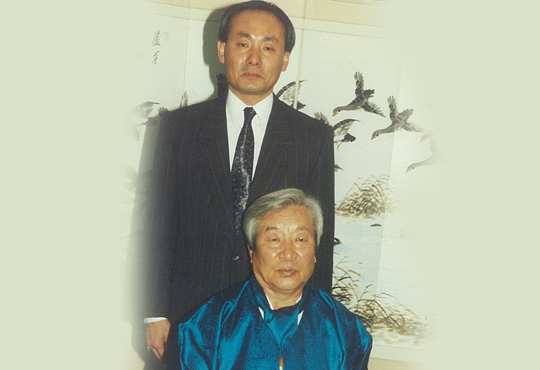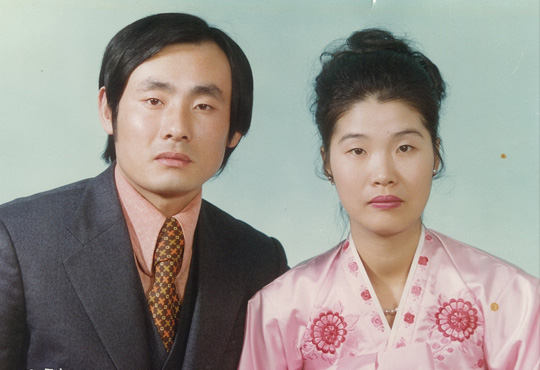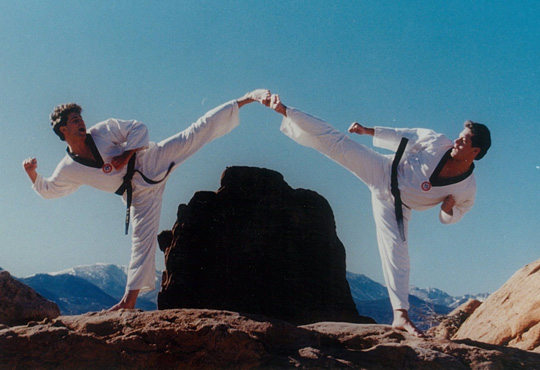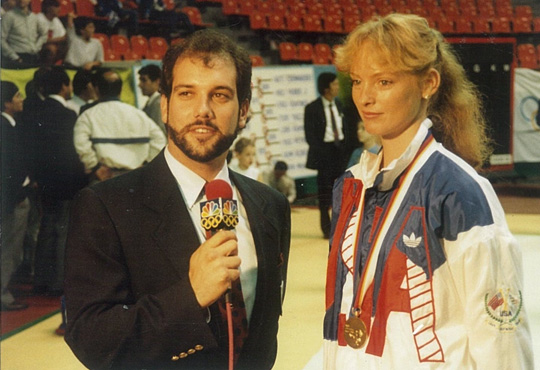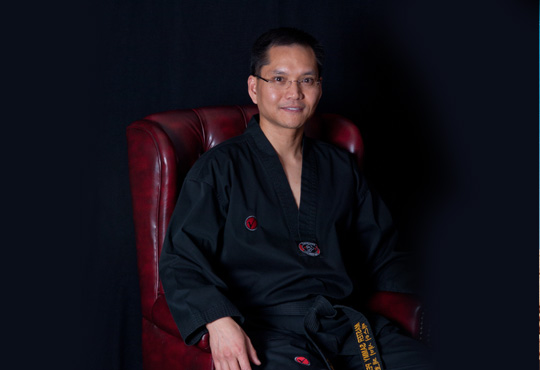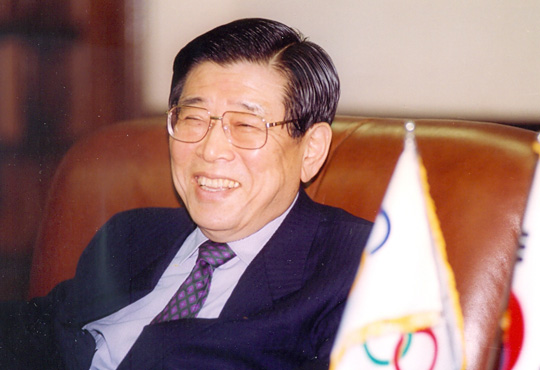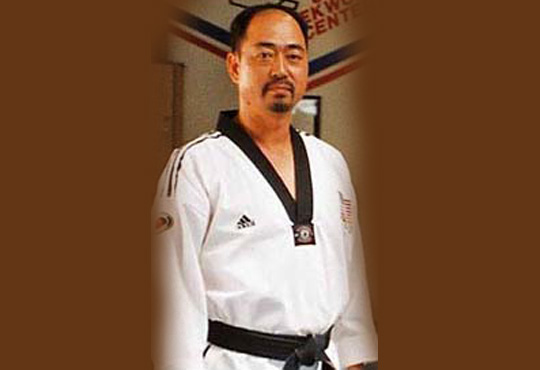


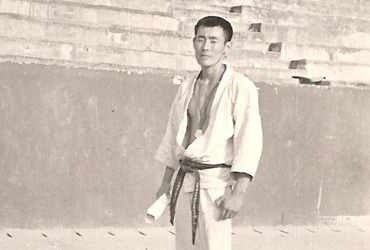
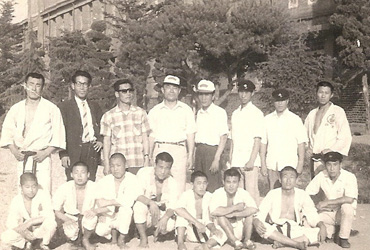
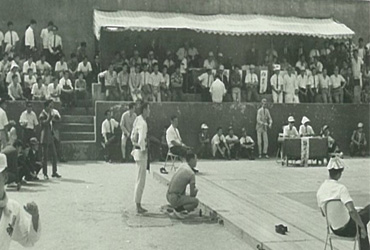
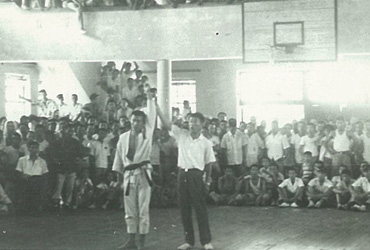
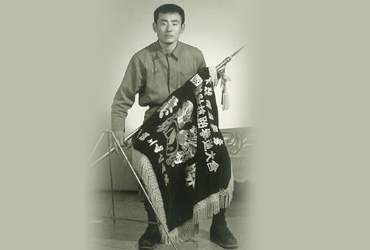
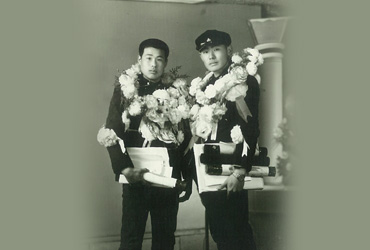
In 1986, Grandmaster Lee opened the first of five US Taekwondo Center (USTC) locations in Colorado Springs, Colorado. Today, the USTC is recognized around the world as a leading Taekwondo School.


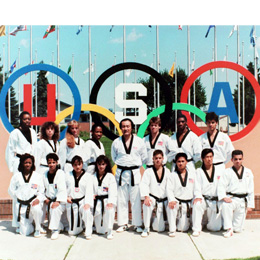
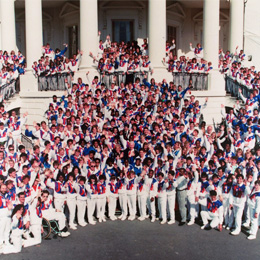
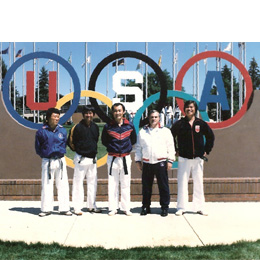
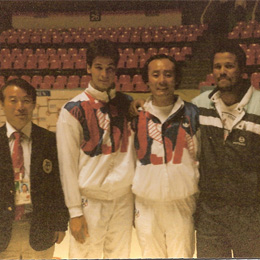
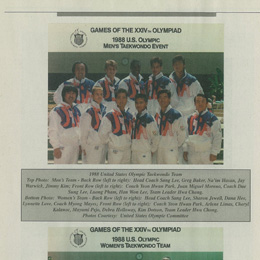
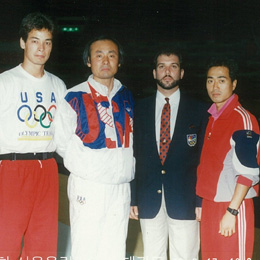
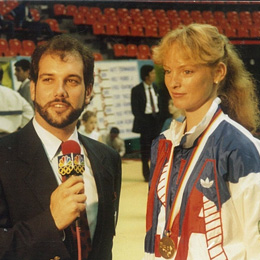
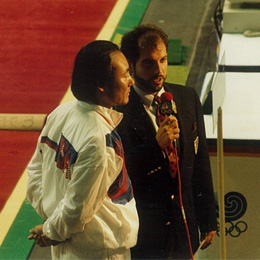
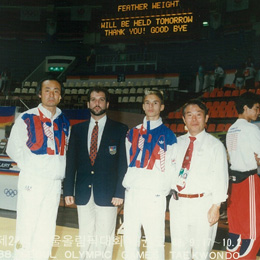
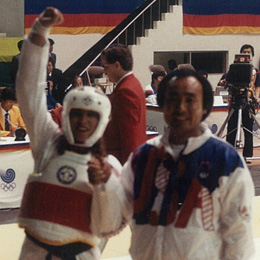

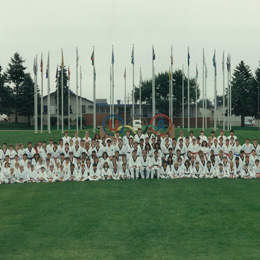
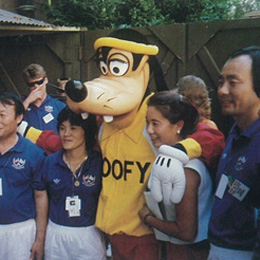
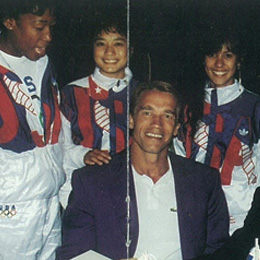
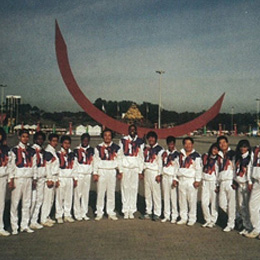
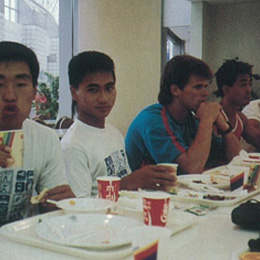
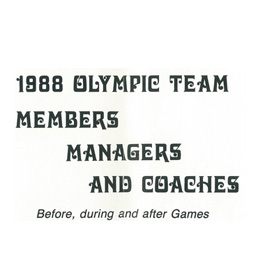

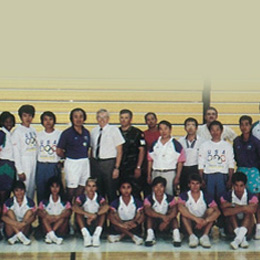
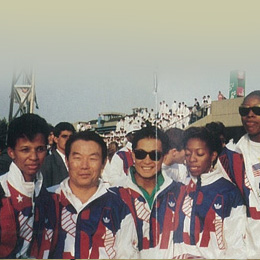
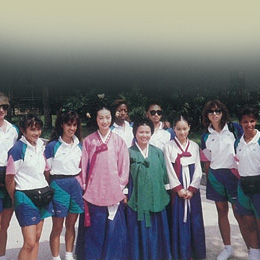
Grandmaster Lee served as the U.S. National Team Coach from 1979 to 1 988. This is the longest tenure for any U.S. National Team Coach in the history o f the United States. He was later selected as the first U.S. Olympic Head Coach for the 1988 Oly mpic Games in Seoul, Korea, and in 1986 he moved his family to Colorado Springs in o rder to be closer to the Olympic Training Center. In 1986 after being selected as the U.S. Olympic Head Coach many peop le from all over the United States asked Grandmaster Lee to come and teach seminars and hold coaching clinics. Although the demand was high, Grandmaster Lee was limi ted on time. Due to time constraints other people requested that he write a book with c oaching methods and Sparring techniques and philosophies. However, Grandmaster Lee ’ s philosophy is you can never truly learn by reading a book and looking at pictures. To he lp meet the demand and grow the Olympic movement he created the training video - Get Ready for the Gold. These videos outlined his training techniques and sparring philosophies. Hundreds of copies were sold across the country and Taekwondo Masters and students studied them to improve their sparring skills. These videos helped grow the Olympic Tae kwondo movement in the United States. These philosophies and techniques are still being used t oday. In 1988 at the Seoul Olympic Games the U.S. Olympic Taekwondo team placed an incredible 2 nd overall in the world. The Women ’ s team placed first, beating the Korean women ’ s team, and the Men ’ s Team placed second, just behind the Korean men ’ s team. This was an incredible accomplishment, especially in the country that is home to Taekwondo.
Taekwondo VisionTaekwondo's has achieved greatness not only because it is an Olympic Sport, but because all people from all over the world, no matter their race, color, creed, or ability can participate in this martial art to maximize their potential
Grandmaster Lee told his students many stories to help us in our Taekwondo training. These stories were created to not only teach and understand the physical aspect of Taekwo ndo but more important the philosophical aspect of Taekwondo and life. These stories are incredib ly easy to understand and relate to for all ages but they have deeper meanings and morals that apply to all areas of life.
Unquestionably, DaeSabumnim’s most famous story is this one. He uses it to illustrate the proper way to kick.
"Imagine that you want to go on a bus trip between Colorado Springs and Denver. Since the bus does not pick you up at home, the first thing that you have to do is go to the bus station. (From fighting stance, the rear or kicking foot on the ground is considered at "home". To go to the bus station means to bring the kicking leg to the knee.)
From the bus station, you can then go to Denver. (Extend kicking leg so it reaches the target.) From Denver, you want to return home to Colorado Springs. Since the bus does not take you straight home, you have to go back to the bus station first. (Kicking foot does not go directly back to the ground, but instead returns to the knee.) From the bus station, you can then go home. (Foot goes from knee back to ground.)
The bus driver goes from Colorado Springs to Denver at 75 miles per hour, but he is anxious to return home, so he drives from Denver to Colorado Springs at 85 miles per hour. (The kick, or punch, goes out at 75 mph, but snaps back faster at 85 mph. Returning quickly means that you are able to set up fast for the next movement: kick, attack, etc. This also greatly improves the speed of the kick, protects the kicking leg from injury, and creates a snapping motion which increases the impact of the kick)"
This story became well known throughout the world after Grandmaster Sang Lee became the U.S. National coach in 1979. Since then most national champions and all members of the USTC have learned this story and have applied it to their training.
A long time ago, a man decided that he wanted to become a great martial artist. He went to his Master and asked him what he could do to achieve this greatness. His Master told him to go to the mountains and to study alone. This man traveled to the mountains and lived alone in a cave for many years. Without direction, he did not know what to practice. So, for over 10 years, he just spent his time picking up ants and tearing them in half.
One night, the man was awakened by a sound in his cave. He could not see in the darkness, but instinctively he reached out, grabbed the intruder, and tore it in half, just like he had done with the ants for so many years. The next morning when the light entered the cave, the man saw that the intruder he had killed had been a tiger.
The moral of this story is that even doing something small as tearing ants for 10 years consecutively, you can develop powerful and meaningful skills. If you can stay focused and disciplined on even simple techniques you can become a Master and achieve the highest level.
One day a person wanted to travel from his village to another one over the mountains. He had a long way to go through a forest. Not wanting to stop because of the tigers, he kept on going, and eventually it got dark. There were a lot of noises in the forest and he was often frightened. Suddenly, on the trail ahead of him appeared two shining eyes. Now he became very afraid. Not wanting to be eaten by a tiger, he took out his one and only arrow and with all his concentration, took sight on the target and shot the arrow. The eyes disappeared. Since it was dark, and he was still afraid, he hurried on to the village. The next day, he was very curious as to what he had killed so he went back into the forest and found where he had shot the arrow. Imagine his surprise when he found out he had not shot a tiger, but instead his arrow was firmly embedded in a rock. This shows what can be done if we concentrate hard enough and consider every action to be a life or death decision.
Two people went walking along a path in the mountains. One of these people is a student of Taekwondo and the other is not. Suddenly a mountain lion leaps out of the bushes with the intent of eating them. When the lion opens its mouth, the Taekwondo student begins to count its teeth. The other person cries out in fear and begins to run. The lion chases this person, catches him, and eats him.
The moral of this story is that in the face of danger and pressure you must always remain calm. If you can remain calm and use focus and concentration you will succeed in a life or death situation. You cannot lose control of your mind and body. In this story, the Taekwondo student remained calm and simply counted the lion’s teeth and survived this dangerous situation.
A great Taekwondo Master realizes that he is coming close to the end of his life and wants to decide which of his two best students he will leave in charge. He asks these students to each make a sword. For a year, these students build the sharpest and strongest swords that they can. After a year, the students return to the Master and give him their swords. The Master places the first student's sword in a river and watches as a leaf floats toward its blade. The leaf passes over the blade and is cut in two. The first student is proud for he has created a great, sharp sword. The Master then places the sword of the second student in the river and watches as a leaf floats toward it. Just before reaching the sword, the leaf changes course and floats around the blade. The Master smiled and pronounced the second student his successor.
The moral of this story is that although as Taekwondo practitioners we are learning powerful techniques, it is best not to fight and hurt others. The most talen
This story was not created by Grandmaster Lee. Rather, it is a famous fable that takes place in the Choson Dynasty. During the Choson dynasty, penmanship was very important in Korean society.
During the Choson dynasty, there is a mother and a son that lived together. The mother was very poor and worked making rice cakes. She went from house to house to sell rice cakes so that she and her son could survive. She wanted to send her son to learn and become a famous penmanship writer. She saved enough money to send her son to a Master in penmanship. She told her son to stay with the Master and train and practice for 10 years to become a Master in penmanship.
After about a year, the son stays with the Master and works hard to develop his penmanship. He thought that he had learned and practiced enough and was now a Master. One night, he left the training with his Master and returned to his mother’s home. Late at night he woke her up and explained that he now had perfect penmanship and did not need to train with the master anymore. He can learn nothing more.
She was surprised to see her son back after such a short time and asked him to prove that he had truly mastered his penmanship. She told him that they will have a contest: she will make rice cakes and he will write. She turned out the lights and in the darkness, both went to work.
When the lights are turned back on, she has completed a stack of perfect rice cakes while her son has written a huge mess on his paper.
She told him to go immediately, in the middle of the night, back to the Master’s house to learn. She told him not to sleep and to travel back that night. Crying, the boy returned to the Masters house.
He stayed at the Master’s house and patiently trained for the rest of the 10 years. He went on to become the most famous penmanship writer in the Choson dynasty.
The moral of the story is that a student must have patience in his or her training. Although he or she may feel that they have learned everything that they can, true mastering of skills means that the student can execute what he or she learned without even looking. The technique must be second-nature without any thought.
When a child is small and gets spanked by his parents, he cries for himself because it hurts him physically. When he gets older, he cries because they no longer have the strength to hurt him.
The moral of this story is that as children we do not realize why our parents make the decisions that they make. We often are upset at their choices or the things that they make us do. However, once our parents are gone we will be more upset that they are no longer there to support us. Children should appreciate what their parents do for them and appreciate that they push us to make us stronger.
USTC’s Hall of GratitudeGrandmaster Lee and the USTC would not be the successes they are today without the hard work and dedication of these individuals. To show his respect and appreciation, Grandmaster Lee has named these people to his Hall of Gratitude.
